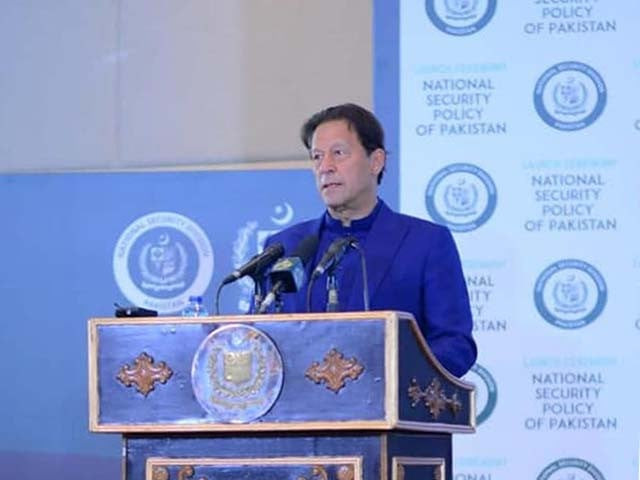On January 14, 2022, Prime Minister Imran Khan inaugurated Pakistan’s first ever National Security Policy (NSP). He expressed hope that the implementation of the NSP would “contribute immensely to our country’s economic security”. National Security Advisor Moeed Yusuf elaborated that the NSP would buttress Pakistan’s traditional and non-traditional security by placing “economic security at the core”. Moreover, the NSP emphasises the value of economic security at the centre of the “comprehensive national security”, with special attention to “a geo-economic vision”. While many have heralded the NSP as a much needed framework which will help steer Pakistan in the right direction, there are some shortcomings within the policy which need to be addressed. Currently, the NSP is bereft of any specifics that explain how economic security will be accomplished given that Pakistan’s external debt liabilities presently stand at $118.5bn.
Perhaps the most glaring omission from the NSP is that there is no mention of Pakistan weaning itself off the International Monetary Fund (IMF) in order to acquire economic independence. Instead, rather bizarrely, the NSP endorses multilateral institutions like the IMF “to have salience for Pakistan’s security”. The reality of the situation is that Pakistan cannot achieve economic security or attain a decent degree of economic sovereignty unless it severs ties with the IMF. The PM’s latest endeavours to push a raft of measures through the National Assembly in an attempt to make the State Bank of Pakistan (SBP) autonomous belie any notion of economic security contained within the NSP. The SBP Amendment Bill is a requirement by the IMF before the organisation can release the next tranche of the $6 billion Extended Fund Facility (EFF).
The IMF conditionalities contained in the SBP bill not only undermine the central bank’s independence but strike at the heart of Pakistan’s economic security. The SBP bill ensures that the central bank will deprioritise the support of development work undertaken by the government such as the improvement of infrastructure, and the establishment of schools and hospitals. Furthermore, the SBP bill prevents the government of Pakistan from borrowing funds at the discount rate of the central bank. This means that the current government, and future governments, will be deprived of SBP funds to plug shortfalls in the fiscal budget. It also implies that governments will be forced to borrow money from commercial banks that typically charge interest rates much higher than the discount rate set by the SBP. This will certainly lead to a dramatic rise in domestic debt — which is much larger than the external debt — and also damages prospects for growth because commercial banks will not have much incentive to lend to the industry after securing a prized client like the government of Pakistan.
But the biggest impact of the SBP’s autonomy will be the loss in the ability to set the monetary policy by Pakistani governments in the years to come. At present, the government of Pakistan can exercise its right to set interest rates to expand or contract the economy. However, under the behest of the IMF, the SBP will soon have to set interest rates that benefit international creditors of the Fund and not the people of Pakistan. From the fiscal years 2001 to 2020, Pakistan borrowed $112.6 billion from foreign creditors, and in the same period, the country paid a staggering $117.9 billion in principal and interest. This is when Pakistan possessed some control — other than succumbing to IMF conditionalities to set interest rates — over its monetary policy. Imagine what is likely to happen when the SBP sets a monetary policy to appease the IMF in the future.
Unsurprisingly, international creditors continue to lend to Pakistan — despite its poor economic record — because it is such a profitable venture. One can also see that future tax receipts collected from Pakistanis will go towards servicing domestic and foreign debt. In light of these potential developments, one cannot help but ask the question: where is the economic security in all this? The truth of the matter is that what the NSP is proposing appears to have failed to take into account the country’s current economic predicament and also ignores potential future ramifications. As a result, unfortunately, the NSP is a set of lofty ideals disconnected from the ground realities of the Pakistani economy.



COMMENTS
Comments are moderated and generally will be posted if they are on-topic and not abusive.
For more information, please see our Comments FAQ